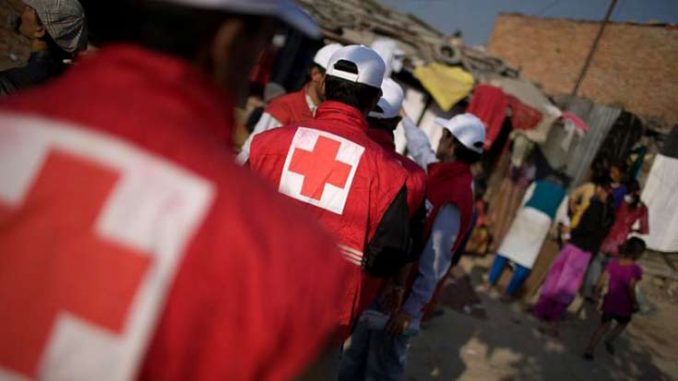
- The first principle of health is life. Conflict takes life.
- Conflict and fragility are referred as ‘New Normal’ as these things are increasing in many parts of the world. Moreover, it also affects the health care setting brutally.
- Conflict in health care settings refer to any threat, obstacle, armed conflict, internal disturbance, loot and force close of the health facilities or health system.
- It also includes generalized state of insecurity where function of health facilities is disrupted or impeded while health workers are restricted to perform their duties fully.
- Conflict in health care settings includes attack to the health workers, health facilities and patients
- These have become very common these days. It is considered and used as the most convenient way to threaten state authority for fulfilling irrational demands
- However, different conventions and international laws like Geneva Conventions, customary international humanitarian law and other treaties clearly recognized attack on health workers and patients as a violation of international law, although none of them being enforced strongly
Health Care Challenges in Conflict Settings:
- Worst health indicators
- Weak health system
- Health workers becoming target of violent activities
- Growth of informal private practices
- Limited resources and capacity to provide effective health services
- Lack of competent human resource for effective and efficient functioning
- Limited or poor performance of health workers due to psychological and emotional breakdown
- Shaky professional conscience and decreased motivation
- Disrupted information system
- Reduced work productivity
- Reduced supervision and monitoring from the higher level which ultimately reduces quality and motivation to work
- Higher dependence on foreign aid
- Stock out of health commodities and medicines
- Damaged infrastructure
- Feeble policy making system
- Limited government capacity for uplifting health care system
- Population displacement
- Increased morbidity and mortality
- Disruption in supply chain
- Workload escalation to health workers which ultimately reduces the quality of work
- Increased inequity in health service utilization as the remote areas population may not have good access to health services and facilities
- Amplified chances of outbreak and epidemic of diseases
- Increase in corruption and misuse of authority
- Reduced capacity building systems
- Inadequate planning and coordination
Mitigation Measures for Stronger Health Care System in Conflict Settings:
- Strong information collection mechanisms to track about the effect of conflict in health care system
- Mechanisms to record threat and attack against health care
- Interlinking or partnership between health facilities in conflict areas with health facilities in non-conflict areas
- Health system research of conflict and post conflict durations
- Researches to address health care problems during conflict situations through strong relationship between humanitarian organizations and academic institutions
- Global governance efforts to address health care in conflict
References and for more information:
https://www.ncbi.nlm.nih.gov/pmc/articles/PMC4527929/
http://atha.se/blog/not-target-protecting-healthcare-conflict
http://www.whatsinblue.org/2016/09/protection-of-health-care-in-armed-conflict.php
http://journals.plos.org/plosmedicine/article?id=10.1371/journal.pmed.1001668
https://conflictandhealth.biomedcentral.com/articles
https://www.usip.org/sites/default/files/SR_301.pdf
https://www.ncbi.nlm.nih.gov/pmc/articles/PMC5656126/
http://blogs.bmj.com/bmj/2016/11/11/seema-biswas-conflict-is-a-global-health-challenge/
https://sph.unc.edu/global-health/gateway-learning-symposium/
https://www.who.int/bulletin/volumes/95/1/15-168328/en/
http://www.fmreview.org/detention/abusada-serafini.html
http://www.mhinnovation.net/innovations/psychosocial-care-children-conflict-areas
https://conflictandhealth.biomedcentral.com/articles/10.1186/s13031-018-0152-2